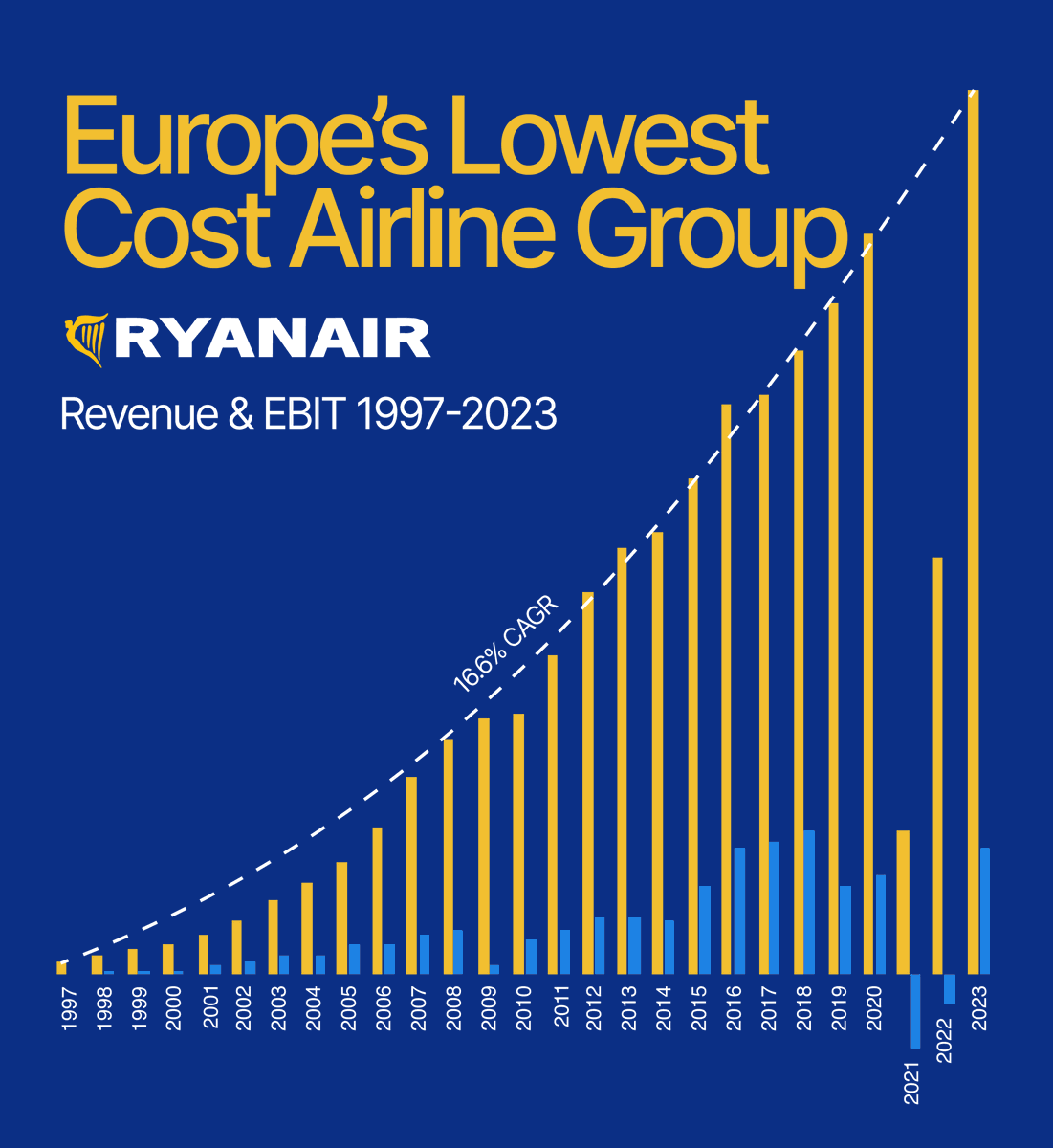Ryanair, the Irish low-cost airline, has revolutionized air travel in Europe since its creation in 1984. Founded by the Ryan family, it began as a small business with just one route between Waterford in Ireland and London Gatwick. However, it was under the leadership of Michael O'Leary, who took the reins in 1994, that Ryanair transformed its business model and became a dominant player in the airline industry.
Inspired by the model of American low-cost airlines such as Southwest Airlines, Ryanair adopted and adapted this concept for the European market. The airline has cut costs by simplifying its operations. It opted for a standardized aircraft fleet, reducing maintenance and training costs. Ryanair also began to use secondary airports, which were less busy and therefore less costly, enabling it to reduce airport tariffs and offer lower prices to its customers.
At that time, when the hub-and-spoke network model was dominant, Ryanair's management deliberately chose the heterodox approach of point-to-point flights to increase the number of trips each aircraft could make per day, thereby reducing the average unit cost. This counter-positioning strategy enabled the company to make considerable savings.
In terms of pricing, Ryanair introduced a progressive fare system, where the first tickets sold are the cheapest, encouraging customers to book early. This strategy has maximized aircraft load factors and generated additional revenue through the sale of ancillary services such as priority boarding, checked baggage and seat assignments.
Ryanair's disruption also manifested itself in advertising and communication. The company has often used provocative advertising campaigns to attract attention, creating a brand known for its bold, unconventional approach.
The savings generated by these innovations enabled Ryanair to offer flights at extremely competitive prices, challenging the traditional airlines. This strategy not only attracted budget-conscious travelers, but also stimulated demand for air travel among those who might not previously have been able to afford to fly.
Over time, Ryanair has continued to evolve, adding new routes and expanding its fleet. It has become one of Europe's largest low-cost airlines, carrying millions of passengers every year. Despite criticism of its customer service and working practices, Ryanair's impact on the airline industry is undeniable. It has forced traditional airlines to review their own cost structures and introduce lower fares to remain competitive.
Ryanair's success story is a classic example of how a company can disrupt an industry by adopting a strategy of innovation and cost reduction. By focusing on simplicity, efficiency and low fares, Ryanair has not only survived in a competitive market, but thrived, becoming a model for other low-cost airlines around the world such as Easyjet or Wizz Air.
Ryanair growth between 1997 and 2023

Source : Quartr
To find out more, read this article on low-end disruption

 By
By 




